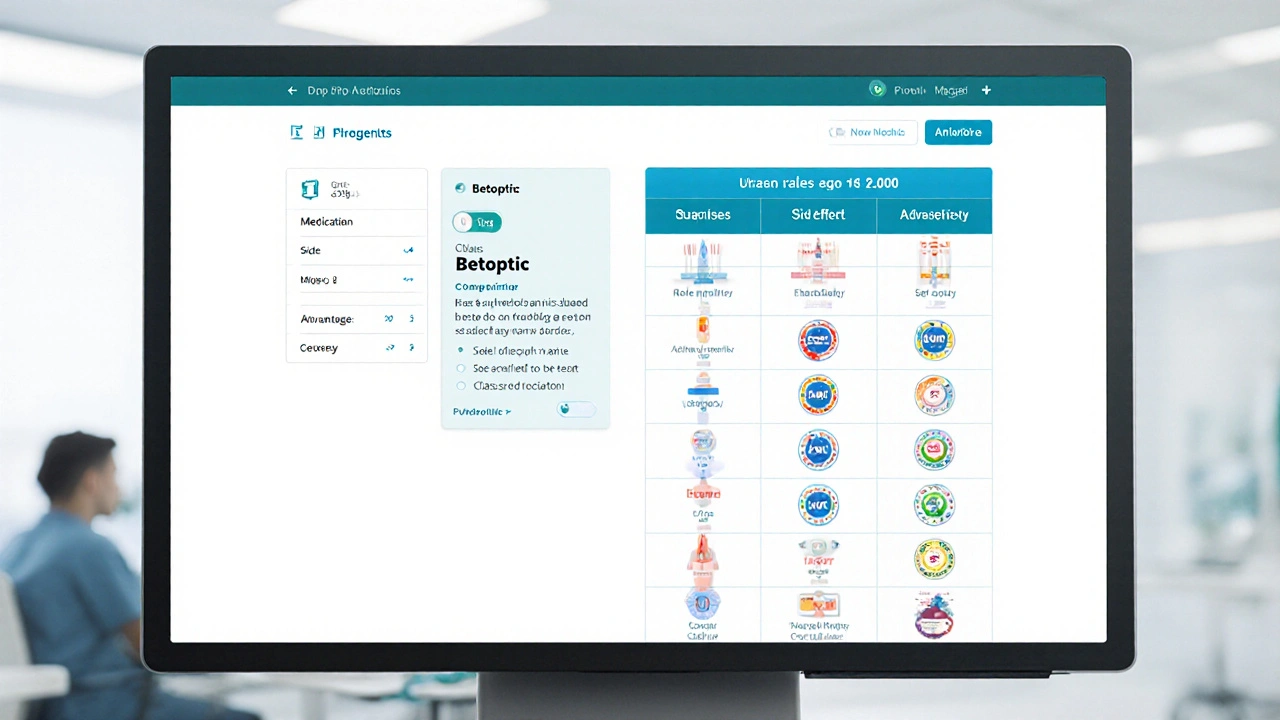Beta Blocker Eye Drops: What They Are, How They Work, and Alternatives
When your eye pressure stays too high, it can quietly damage your optic nerve—this is beta blocker eye drops, a class of medications used to reduce intraocular pressure by slowing fluid production in the eye. Also known as ocular hypotensive agents, they’re one of the most common first-line treatments for glaucoma, a group of eye diseases that can lead to irreversible vision loss if untreated. Unlike pills or injections, these drops work right where the problem happens: inside your eye.
They don’t cure glaucoma, but they stop it from getting worse. The most common one is timolol, a non-selective beta blocker that reduces the amount of fluid your eye makes. Others include betaxolol and levobunolol. Each has slightly different effects—some are safer for people with asthma or heart conditions. You usually use them once or twice a day, and they start working within an hour. Many patients use them for years without major issues, but side effects like dry eyes, blurry vision, or a slower heartbeat can happen. If you’re on oral beta blockers for blood pressure, your doctor will check for interactions.
Not everyone responds well to beta blocker eye drops. Some people need stronger options, like prostaglandin analogs (latanoprost) or carbonic anhydrase inhibitors (dorzolamide). Others switch to laser treatments or surgery if drops aren’t enough. What’s interesting is that these drops aren’t just for glaucoma—they’re sometimes used off-label for other eye conditions involving high pressure, like ocular hypertension in people who haven’t developed nerve damage yet. Your eye doctor picks the right one based on your health, other meds, and how your eyes respond.
What you’ll find below are real comparisons and practical guides from people who’ve used these drops, switched to alternatives, or dealt with side effects. You’ll see how timolol stacks up against newer options, what to watch for when using them long-term, and how some patients manage to lower pressure without daily drops. This isn’t theoretical—it’s what real users and doctors are talking about right now.
Betoptic vs Other Glaucoma Eye Drops: A Practical Comparison
A practical side‑by‑side comparison of Betoptic (betaxolol) with other glaucoma eye drops, covering effectiveness, side effects, cost, and how to choose the best option.
